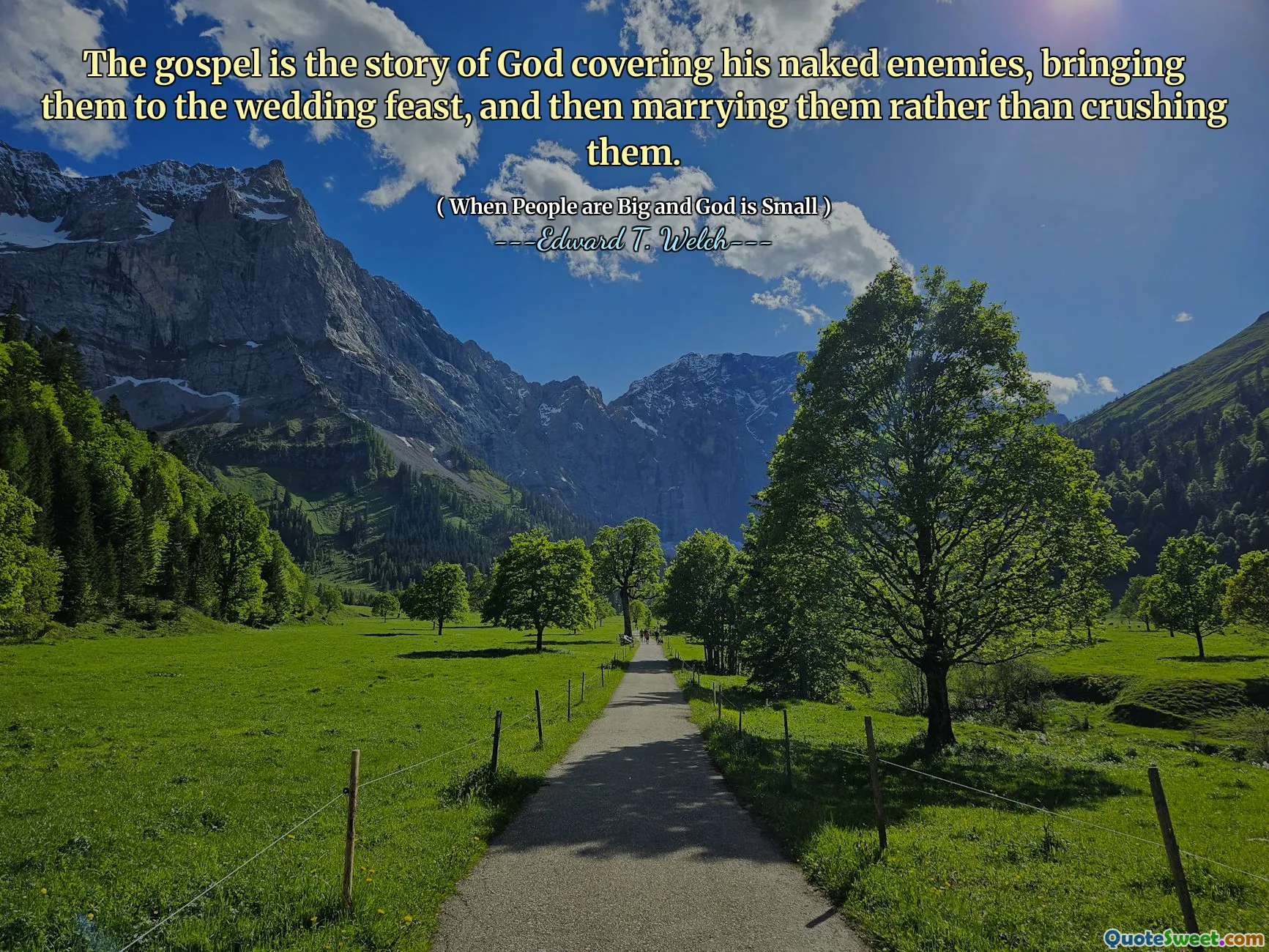
The gospel is the story of God covering his naked enemies, bringing them to the wedding feast, and then marrying them rather than crushing them.
This quote offers a profound perspective on the nature of grace and redemption within the Christian gospel. It vividly illustrates God's extraordinary compassion and mercy, depicting Him not as a stern judge eager to condemn but as a compassionate bridegroom who.cover his enemies with love and forgiveness. The imagery of God 'covering his naked enemies' suggests an act of tender protection, shielding them from shame and judgment. The invitation to the wedding feast underscores the restorative and inclusive nature of divine grace — it’s not about condemnation but about reconciliation and celebration. Marrying rather than crushing signifies God's desire to restore relationships rather than destroy; it highlights the radical and scandalous love that is at the heart of the gospel.
Reflecting on this, one is reminded of the depth of human brokenness and the astounding grace extended through Christ. Humanity, often depicted as struggling to hide its vulnerabilities and sinfulness, is met with love rather than rejection. Instead of highlighting our shortcomings, God chooses to rekindle and renew our dignity through His love, inviting us into an eternal celebration. The imagery encourages believers to see others with the same grace and compassion, recognizing that everyone is in need of divine covering and acceptance. It challenges us to rethink notions of justice and mercy, emphasizing that the transformative power of the gospel is rooted in unconditional love, humility, and willingness to reconcile. Ultimately, this quote captures the essence of the gospel: a divine love that upsets our expectations and invites us into a celebration of grace and union, rather than condemnation.






